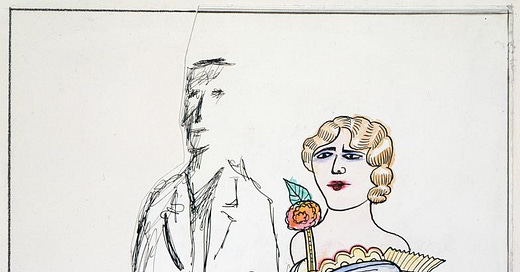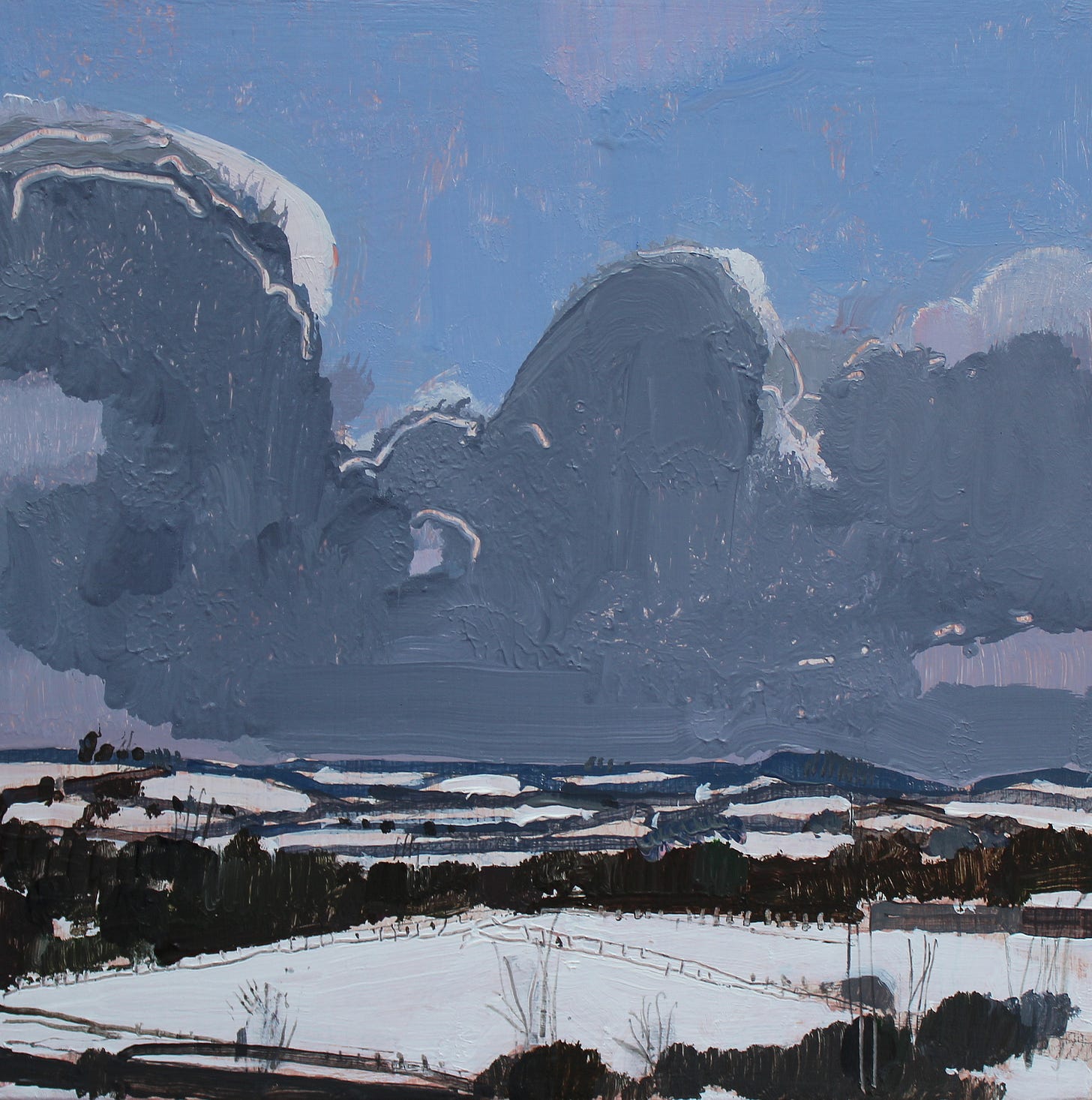Way back in 1981 when I was doing my MFA at the University of Calgary, one of the additional requirements was to take an academic course outside of the art department, as well as the usual slate of studio, seminars, and art history courses. One of the students already in the program recommended a psychology of creativity course that many of our peers opted for. I briefly considered the idea but rejected it in favor of an anthropology graduate course on Sufism.
(I sure do miss the absolute brilliance of Saul Steinberg, one of the most creative drawers of the last century. How easily he could translate ideas into line!)
I rejected the creativity course because at that point I mistrusted the concept. The idea of creativity seemed nebulous, hard to pin down. And I suspected a psychology course dealing with the subject would be filled with airy-fairy, flaky art types, with a lot of anecdotal relating…….the type of place where frustrated writers and dabblers sit around in a circle and discuss their feelings….ickkkkkk! And where every goddamn thing is pumped up as OK and important. I also suspected that the type of people who like discussing such things were largely people who couldn’t make interesting art, who were essentially lazy, and would prefer to sit around and discuss why they were blocked.
I knew that the key was simply to get to work, and I suspected too much navel gazing on the subject could actually interfere with and sabotage the process of making things. This is still a common idea. A lot of creative people will tell you, “I know how to do this, but I can’t tell you HOW I do it, and I don’t really want to know how I do it.”.
In retrospect, I really wish I HAD taken that course. I think I really got interested in the subject of creativity when I was teaching full time. I was always looking for things that would get the students motivated about making things, and to get all the time-wasting garbage out of the way quickly. And it was really interesting when some assignment I’d set would just take off, and you could see them pleasurably lost in an activity and full of energy. It was interesting to see when things came easily to them, when their bodies would move with certainty and decisiveness, and when relatively complex visual problems were solved without a lot of struggle and angst. With studio courses, particularly sculpture, you could see the students thinking, and how thought was almost immediately translated into action.
And always with my own work, the ideas of ease and energy have always been important….get to the activity fast, get to the point fast, let the process engulf you, don’t let irrelevancies interfere.
So, I’m still interested in the subject of creativity today and I periodically search and see what I can find of merit on the topic.
In this email I’ll point you to a couple of brilliant people on the subject. And my test for granting a person an audience on this topic has always been, can the person commenting, do the thing himself? And you’ll see that is in fact the case.
I refer you to 2 people who offer real insight into this topic. In both cases they are people who have a proven record of being extremely creative in their own endeavors. And each is wonderful to listen to. In both cases, you will be able to find many videos about them on You Tube; I have linked to just a very small sampling here.
The first is Rick Rubin, who is a very successful music producer who has worked with notables such as Johnny Cash, Lady Gaga, Adele, and countless others, producing ground breaking new sounds, all the while claiming he knows nothing about music.
His working relationship with Johnny Cash was fascinating, because Cash was near the end of his career, and no longer very popular. And Rubin started the work by sitting and listening to Cash sing in his living room singing old songs with just an acoustic guitar, no back-up. And that is how all those powerful, spine-chilling songs like ‘Hurt’ came into being. Those final Cash albums made him again hugely popular with the young and old alike!
Rick Rubin, His Secrets for Creativity
Rick Rubin, Access your Creative Mind
Rubin also has a best selling book on the subject of creativity, which I have not read yet, but which has received brilliant reviews by many artists.
The Creative Act: A Way of Being
Dr. Ken Atchity was a tenured university professor before he left that position to become a movie producer. His colleagues at the time thought he was out of his mind to leave such a valued position but he wanted creative risks; he found the complacency, stagnancy and economic certainty of tenure stifling, so he made a change.
Dr. Ken Atchity, On Being an Artist
Whatever your area of involvement, there are some rules of thumb and useful inspiration these two gentlemen can offer!
As always, my new work gets posted almost immediately to my 2 sites:







In 2022 the economic theorist Richard Florida published The Rise of The Creative Class which took the arts organization world by storm. In a nutshell he suggested that "the arts" are good because they are good for the economy. He suggested that in the new creative economy, creative people run the gamut from creative artists to creative art publishers, to creative accountants who do the accounting for arts organizations, creative graphic designers who do their publications, even to the creative catering for art openings. My little 'creative' word salad is intentionally used here to suggest that thanks to Florida the word 'creative' has become as ubiquitous as the word "natural" in the food world.
The problem, in my mind, becomes when the word 'artist' is replaced or at least watered down with the idea that everyone is creative is some way or that all creativity is somehow the same. I don't think it is, and certainly not everyone is.
Harry, interesting post, love your paintings you included. Thanks for including the Saul Steinberg drawing. Way back I saw a show of his work. The pristine nature of the originals was amazing with beautiful color, such a high aesthetic. I was always a fan of the drawings of his in New Yorker covers- when I was in high school. In relation to creativity itself, something that comes to my mind was a letter from Henri Matisse to the students of my art school. I guess he had visited the school while he was painting his mural at the Barnes foundation in Marian Pennsylvania. The letter which was handwritten in French was in a small frame and next to it was a typed English translation in another frame. Basically it said something like he hoped students wouldn’t get the wrong idea about his work or theirs to think there were any shortcuts in the process.